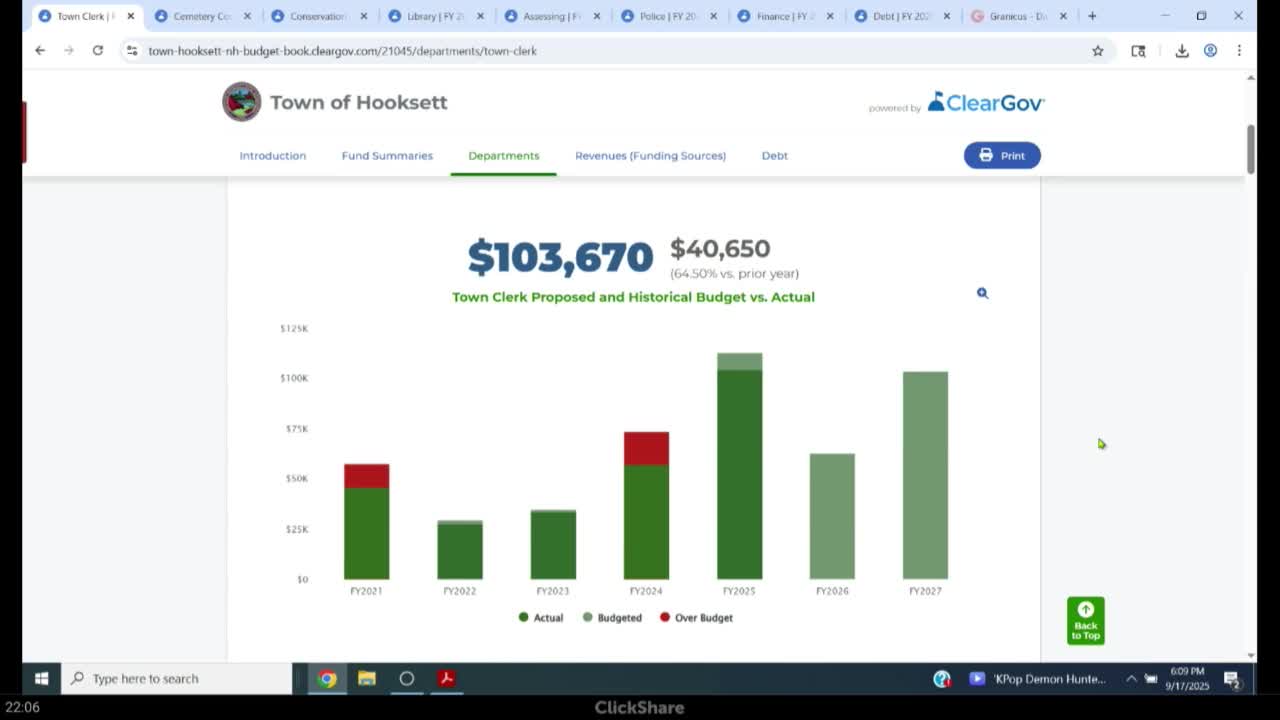Article not found
This article is no longer available. But don't worry—we've gathered other articles that discuss the same topic.
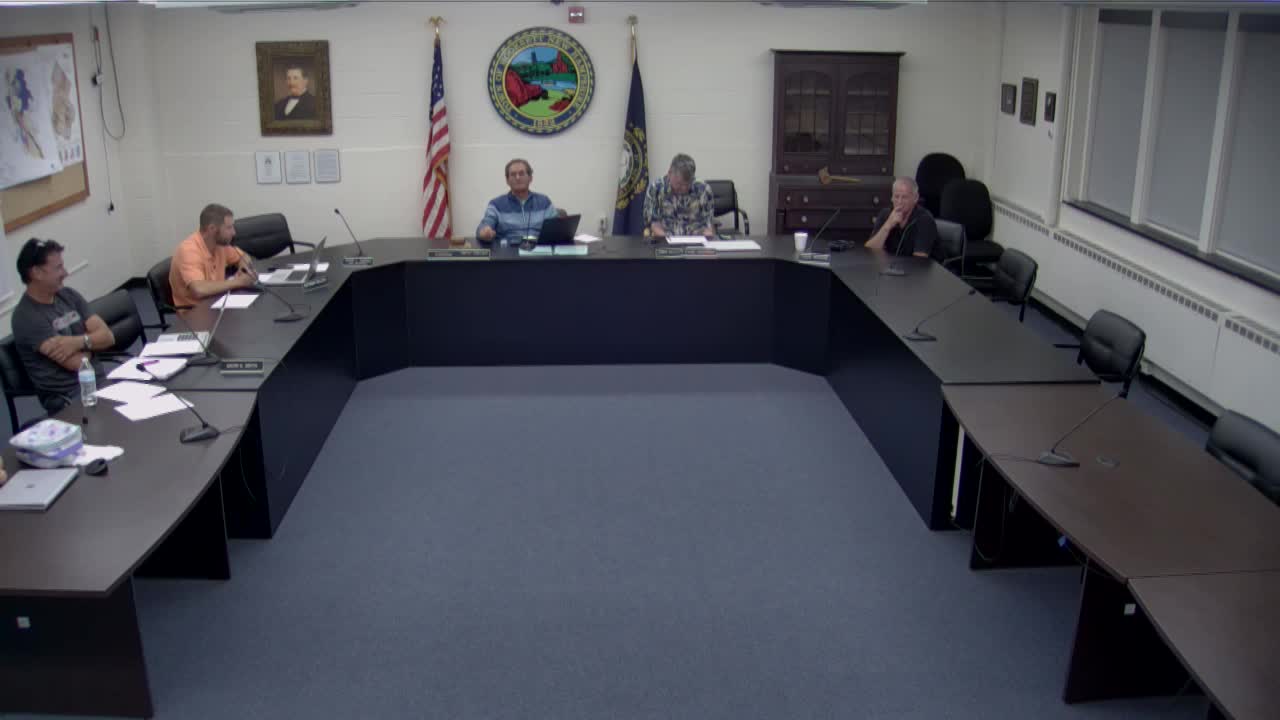
Hooksett council sends $22.32 million recommended budget to budget committee after votes on department budgets
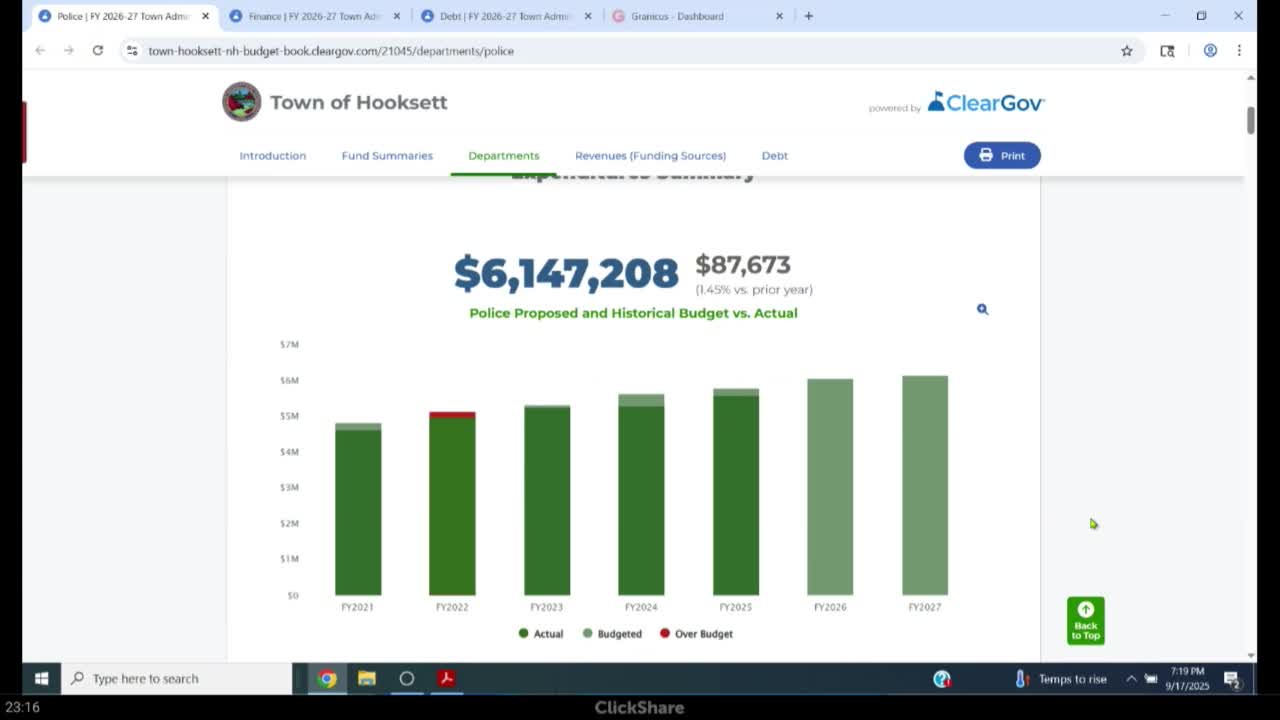
Hooksett council approves police budget amid staffing and overtime concerns
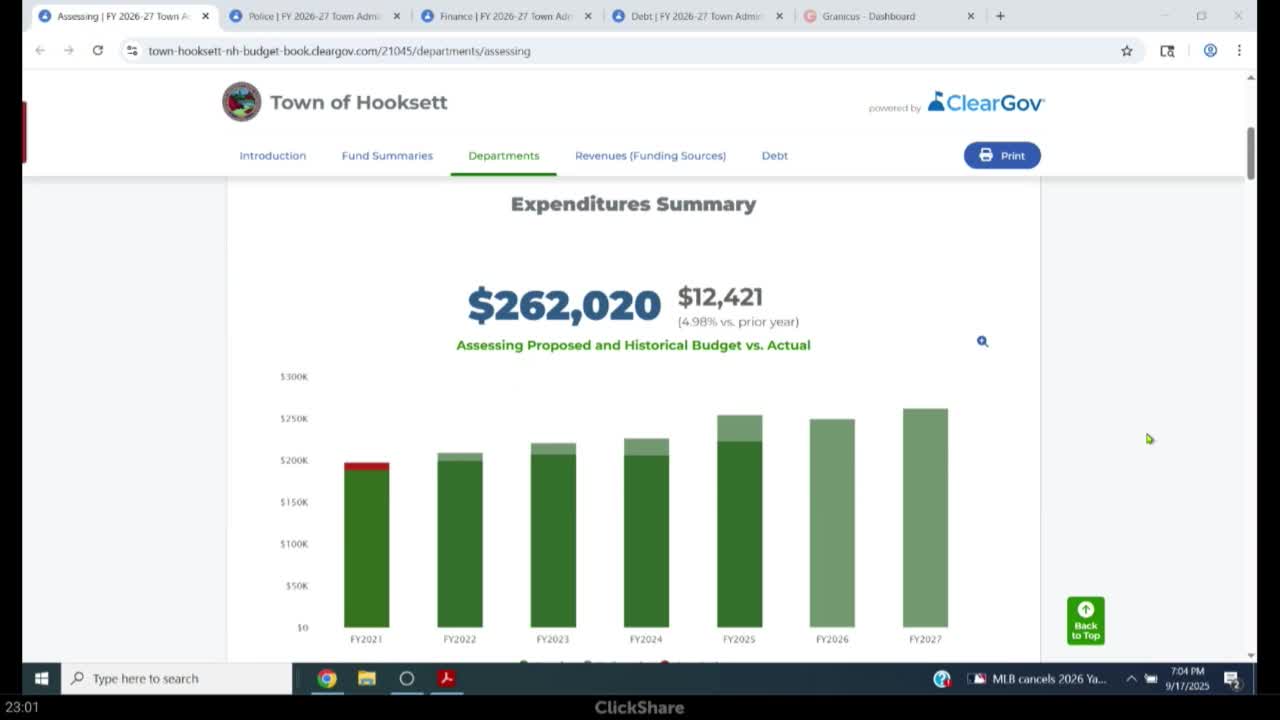
Council approves assessing budget as staff warn town remains below target for annual property measurements
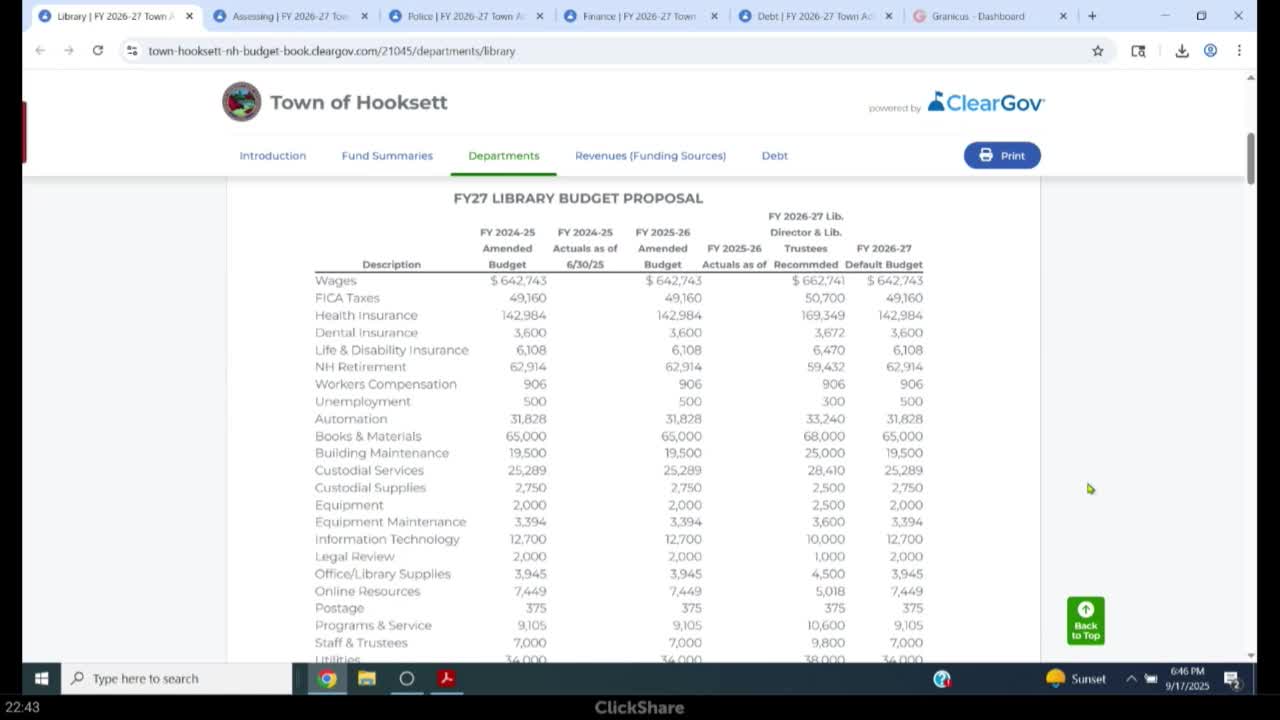
Library board keeps budget request flat; council approves $1.20 million operating ask after debate
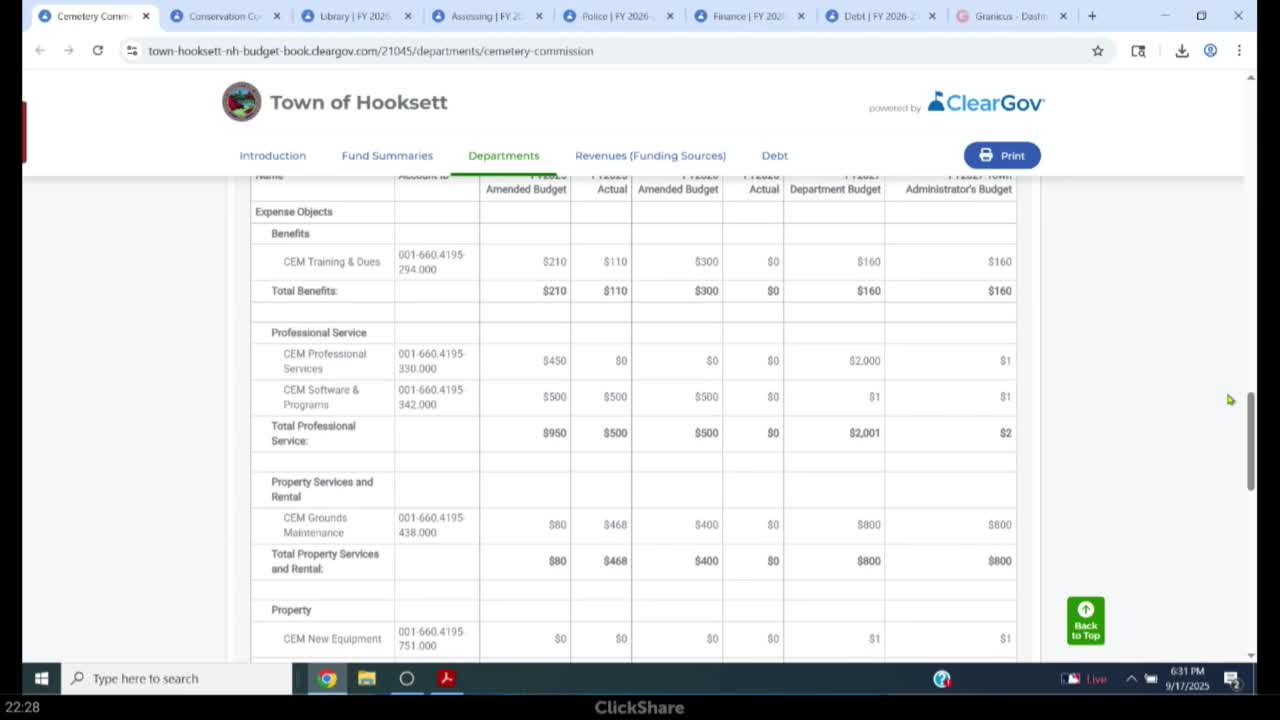
Council approves small increase for cemetery commission to finish mapping, signage and stone restoration work
